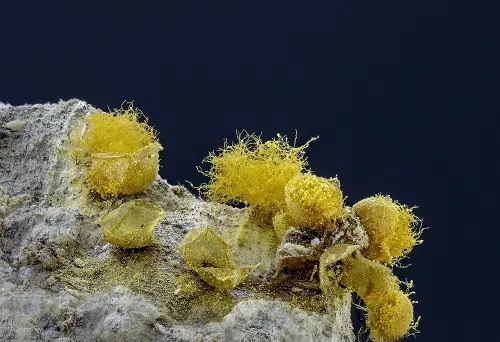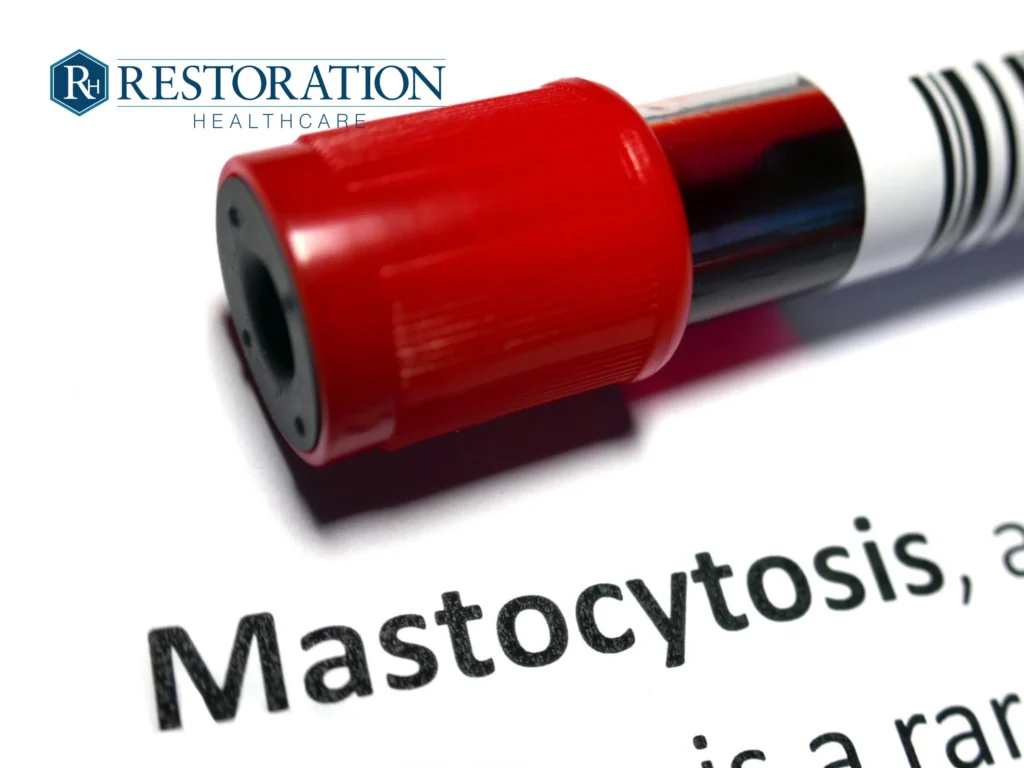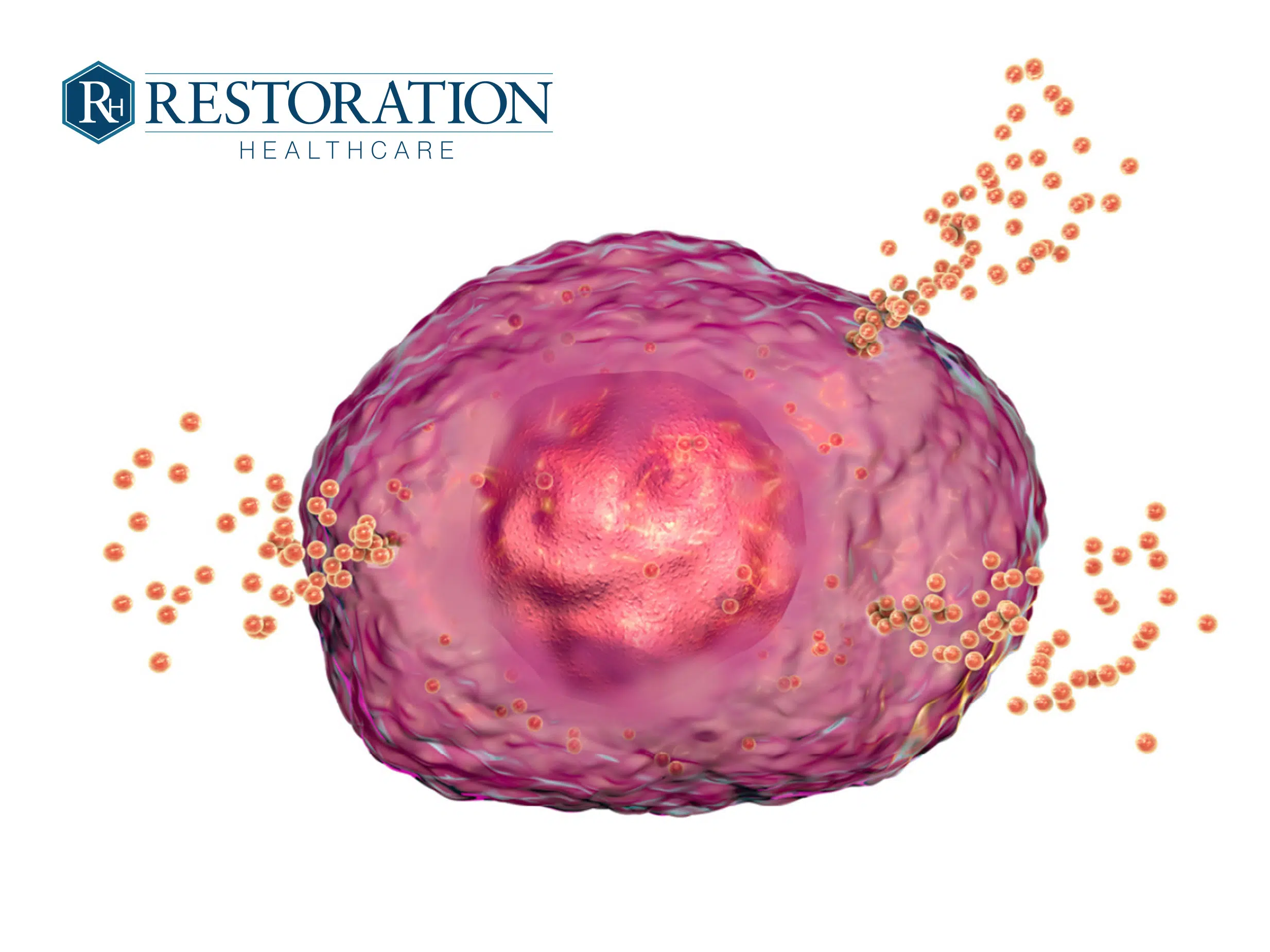Understanding Mast Cell Activation Syndrome (MCAS)

Mast cells are a type of white blood cell found in the body’s connective tissues, including under the skin, near blood vessels and lymph vessels, and in nerves, lungs, and intestines. We need mast cells to regulate an immune-responses to allergens, bacteria, and parasites with the assistance of internal biochemicals like histamine, cytokines, and growth factors. Mast cells release these chemicals during allergic reactions, specific immune responses, and to widen and create new blood vessels.

During a typical allergic response, mast cells can cause blotchy rashes, skin flushing, and itching. In more severe allergic reactions, mast cells can cause abdominal cramps, muscle pain, nausea, vomiting, diarrhea, low blood pressure, and shock. Also, medications, infections, insect stings, and venomous reptile bites can activate mast cells. While allergic responses and reactions to external stimuli like drugs, infections, and edges are not desired, these are normal mast cell responses. Of great concern is when mast cells go awry and cause chronic, debilitating symptoms for a condition called Mast Cell Activation Syndrome or MCAS

What is Mast Cell Activation Syndrome
The condition of MCAS often includes repeated episodes of anaphylaxis or severe allergic symptoms, including hives, swelling, low blood pressure, trouble breathing, and severe diarrhea, according to the American Academy of Allergy and Immunology (AAAID). When this occurs, high levels of mast cell mediators are released. Though the mechanism for MCAS is not always well understood, it is a very frustrating and frightening experience.
The condition of MCAS often includes repeated episodes of anaphylaxis or severe allergic symptoms, including hives, swelling, low blood pressure, trouble breathing, and severe diarrhea, according to the American Academy of Allergy and Immunology (AAAID). When this occurs, high levels of mast cell mediators are released. Though the mechanism for MCAS is not always well understood, it is a very frustrating and frightening experience. Mast cells can become defective and release mediators from a series of abnormal internal signals. “Certain mutations in mast cells can produce populations of identical mast cells – called clones – that overproduce and spontaneously release mediators,” reports the AAAID. “The spontaneous production of mediators in these clonal mast cell disorders is called primary activation. These abnormal cells can grow uncontrollably and are unusually sensitive to activation in a condition called mastocytosis.”
No two people with MCAS are alike, and the condition is considered multi-systemic, meaning that two or more body systems may be affected during a reaction. Symptoms can come and go and can vary in severity. It is typical for a person to have controllable symptoms over time and then see a flare from a stressful event like an illness, surgery, toxic triggers, or life-changing event. This makes for a problematic situation to diagnose, treat and control.
Symptoms of MCA
- Allergies and sensitivities: Food allergies; reactions to medicines, perfumes, or certain odors or scents; allergy-like symptoms; severe reactions to insect bites or stings.
- Cardiovascular: Chest pain, fainting or near fainting, heart palpitations, rapid heartbeat, swelling.
- Dermatologic: Flushing with or without sweating, hair loss, hives (red, itchy bumps), itching, poor healing (for example, a cut that takes forever to heal), rashes.
- Eyes, nose, head, throat, mouth, neck, ears: Eye irritation, dryness, gritty, or burning; earringing; significant dental enamel loss or cavities; sinusitis; swollen glands.
- Gastrointestinal: Abdominal pain, acid reflux, change of bowel habits, difficulty swallowing, heartburn, nausea, diarrhea.General: Exercise intolerance, fatigue, fevers.
- Hematological: Easy bruising or bleeding, frequent or odd infections, swollen lymph nodes.
- Metabolic: Suddenly feeling cold or hot, weight gain or problems losing weight, unexplained weight loss.
- Musculoskeletal: Joint or muscle pain.
- Neurologic: Anxiety, depression, dizziness, numbing or tingling, restless leg syndrome, trouble thinking (brain fog), panic attacks.
- Respiratory: Asthma, chronic cough, shortness of breath, wheezing.Urinary and pelvic: Frequent urination, the sudden need to urinate, pelvic pain
Causes and Triggers of Mast Cell Activation Syndrome:
People with MCAS may also have other health conditions, including:
Environmental toxin exposure,
Mold and mycotoxins
Ehlers Danlos Syndrome (EDS)
Marfans
Postural Orthostatic Tachycardia Syndrome
Lyme disease
Type 2 diabetes
Severe food or environmental allergies
History of repeated infections
Triggers of MCAS:
Drugs: prescribed, over-the-counter, anesthesia and contrast dyes
Exercise
Fatigue
Food and beverages, including alcohol
Infections (viral, bacterial, or fungal)
Skin or mechanical irritation, friction, vibration
Natural odors, chemical odors, perfumes, and scents
Pain
Sudden temperature changes
Sunlight
Stressors, including emotional, physical, and environmental
Venoms from bees and wasps, insects, fire ants, jellyfish, snakes
Diagnosing and Treating MCAS
Mast cell activation syndrome is often difficult to diagnose because most people seek help based on individual symptoms, and therefore, the whole spectrum of possible contributing symptoms may be overlooked. Treating MCAS or any chronic illness this way does not address the underlying cause of symptoms and often leads to frustration for the patient and physician. When people come to Restoration Healthcare with symptoms that could be attributed to MCAS, we don’t assume anything. Whether it is MCAS or some other complex chronic illness, we do not use a one-size-fits-all approach. Our first steps are to collect as much information as possible to understand better the entire chain of events that may have led to the current health issue. In some cases, this chain is less evident and is more of a sudden onset of illness. Regardless of the patterns, our physicians closely examine patterns in test results that are characteristic of mast cell activation syndrome, mastocytosis, or any other contributing co-morbidities. Our whole-person, individualized methods have helped people with this challenging and frustrating condition. If you live in the Los Angeles area and are experiencing any symptoms described here, we urge you to schedule a consultation with one of our doctors. You may have MCAS or something else entirely. We will conduct a full workup and identify and treat all underlying medical conditions.
If you suspect you have MCAS or another chronic illness, Restoration Healthcare provides specialized care. Contact (949) 535-2322 or fill out a patient inquiry form on their homepage to learn more.

